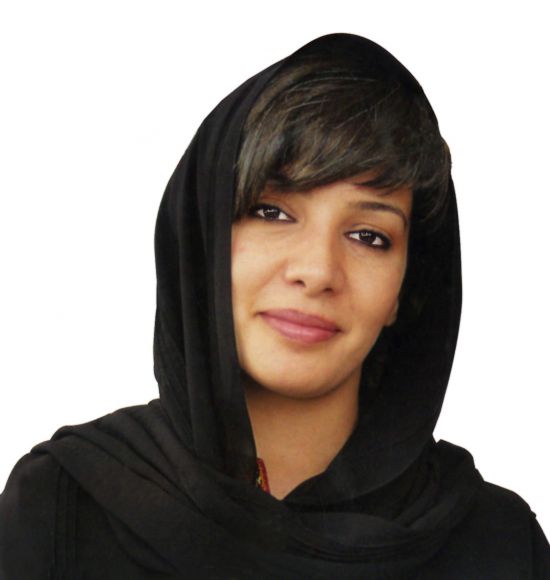It's been over a year now since Mohamed Bouazizi, a 26-year-old Tunisian street vendor, helped start what has become known as the Arab Spring. It was the final act of a despondent young man whose efforts to eke out a living for his family were thwarted by government officials at every turn.
Suicide was his only form of escape. But he did not choose to kill himself in a dark corner. Instead, he set himself ablaze, for all to see, in a public square.
No one could have predicted that this desperate act would spark a mass uprising in Tunisia that would quickly spread to Egypt, Yemen, Libya and Syria. Indeed, not since the European revolutions of 1848 had the world witnessed such spontaneous uprisings in so many countries, and at such a rapid pace.
Tragic as it was, Bouazizi's self-immolation epitomized many Arabs' collective sense of hopelessness and despair. Simply put, they could not take it anymore. Their calls to their leaders were precise and succinct: "kifaya" and "irhal," meaning, "enough" and "leave."
The euphoria that accompanied the relatively quick removal of the presidents of Tunisia and Egypt soon gave way to the realization that such successes could not be easily replicated in the other Arab states. Each Arab country has its own peculiarities of history, social structure, religion, and ethnic and tribal composition that make it unique.
Moreover, as events began to unfold, there developed a growing apprehension that the outcomes of those uprisings may not be as felicitous as many had hoped. After all, and as the French, Russian, Chinese and Iranian revolutions have shown, revolutions often generate unintended consequences that are contrary to their espoused goals.
In the Middle East itself, the revolutionary experience of the mid-20th century has been equally unedifying, to say the least. The overthrow of the Egyptian monarchy in 1952 ushered in nearly 60 years of a military rule that arrested the growth of promising political institutions and that flagrantly disregarded civil rights.
The results were essentially the same after the toppling of regimes in Iraq, Libya, Sudan, Syria and Yemen. So capricious were the new revolutionary regimes in their arbitrary rule that many of their subjects came to pine for their colonial masters, who at least observed a modicum of fidelity to cherished Western political precepts and hallowed legal norms.
It's not yet clear if the leadership that will emerge out of the current turmoil will represent a radical departure from the past. Many of the candidates who have thus far come to the fore have links with the previous authoritarian regimes and functioned within institutions that had long been vitiated by cronyism, patronage and arbitrary rule. It remains to be seen, of course, if those same individuals will ultimately hold power and, if so, whether they can break away from the habits of old.
Most worrying, perhaps, is the stance that the military establishments are likely to adopt in a number of Arab countries in which the bickering among various factions and parties threatens stability and keeps matters in a constant state of flux. The temptation for the military to intervene in such a setting to prevent a slide into chaos or public disorder may be hard to resist.
What is also uncertain is how quickly the new regimes can establish the requisite institutions for any society that wishes to embrace democratic norms and that aspires to political stability and economic growth. Chief among those are the judicial institutions whose independence and integrity are vital to the safeguarding of rights. They are not only the custodians of the principle of the primacy of the rule of law, but also the final arbiters in ensuring that the process through which transactions and decisions are made, be they in the private sector or the public domain, is legitimate and in conformity with accepted rules. Democracy entails far more than elections and votes.
With this backdrop in mind, one can appreciate the enormity of the tasks that will confront the regimes that eventually assume control of the turbulent Arab states. The challenges will be even more daunting considering the tribal makeup of a number of those states. And in countries awash with arms, a long-held desire for vengeance by one group against another will be difficult to check.
Intimidating as these problems are, they nevertheless can—with patience, prudence, goodwill and astute leadership—be overcome. They require a commitment on the part of those in the transitional authorities to be flexible, compromising and accommodative in their effort to attain overarching national goals.
If there is a lesson to be learned from the Arab Spring, it is that the winds of change that are now blowing in the Middle East will eventually reach every Arab state. Now is therefore an opportune time, particularly for the Arab monarchical regimes, which still enjoy a considerable measure of public goodwill and legitimacy, to begin adopting measures that will bring about greater participation of the citizenry in their countries' political life.
Sooner or later, the demand for such participation will come when this increasingly world-connected and better-educated young Arab generation comes of age. It will not be satisfied with the governing modalities of yesteryear, nor with the highly touted minuscule and often cosmetic steps toward reform that have been taken by a few governments thus far. Quite the contrary, such measures will only add to existing cynicism and to the feeling that only through uprisings and violence can meaningful change be attained.
But our citizens, young and old, are also cognizant of the fact that in order to maintain stability and to cultivate an accommodative environment for reform, an evolutionary approach is necessary. They are willing to be patient provided they can discern in their leaders a commitment to well-structured reforms that offer a clear vision of the goals to be reached within defined time spans.
Without such a commitment, peoples' hopes will eventually be dashed. As Samuel Taylor Coleridge wrote in one of his sonnets, "Work without hope draws nectar in a sieve. And hope without an object cannot live."

نصيحة: يمكنك البحث عن طريق الهاشتاق
2012-02-06
The Lesson of the Arab Spring
 ENGLISH
ENGLISH


